NOTTINGHAM, England — During the final days of British Leyland, the sprawling corporation that once owned hallowed British marques including Jaguar, Austin, MG, Rover, Triumph, Wolseley and Daimler, the company entered into partnership to develop cars with the Honda Motor Company. The only products of that relationship that we were able to buy new in the United States were the first-generation Acura Legend and the Sterling, but things got a lot more interesting in the United Kingdom. Today’s Junkyard Scrapyard Gem (that’s what the Brits call them) is a Rover 600 Series, a machine that’s both a Honda Accord sibling and a genuinely British saloon, found in one of the oldest breaker’s yards in England.
Albert Loom’s is located near Nottingham and Sherwood Forest, and I dropped by the place on the drive between Heathrow Airport and the scrapyards of Yorkshire. Most of the vehicles in their inventory are from our current century (The U.K. is a rust-prone place with strict safety inspections), but I did find a few interesting older machines there.
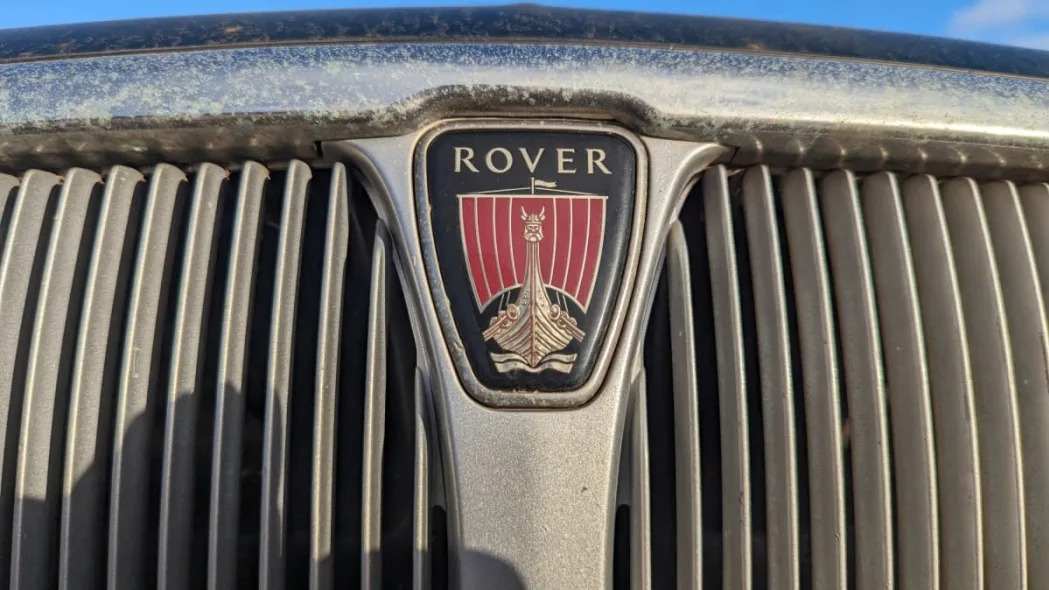
That includes today’s car, which bears the badges of a beloved British marque with ancestry stretching back to its origins as a Solihull bicycle manufacturer in 1878. Rover began building automobiles in 1904 and went through many ownership changes and mergers during the following century. Since 2006, the only vehicles built bearing the Rover name have been Land Rovers and Range Rovers; sadly, the Rover Viking emblems are no longer used.
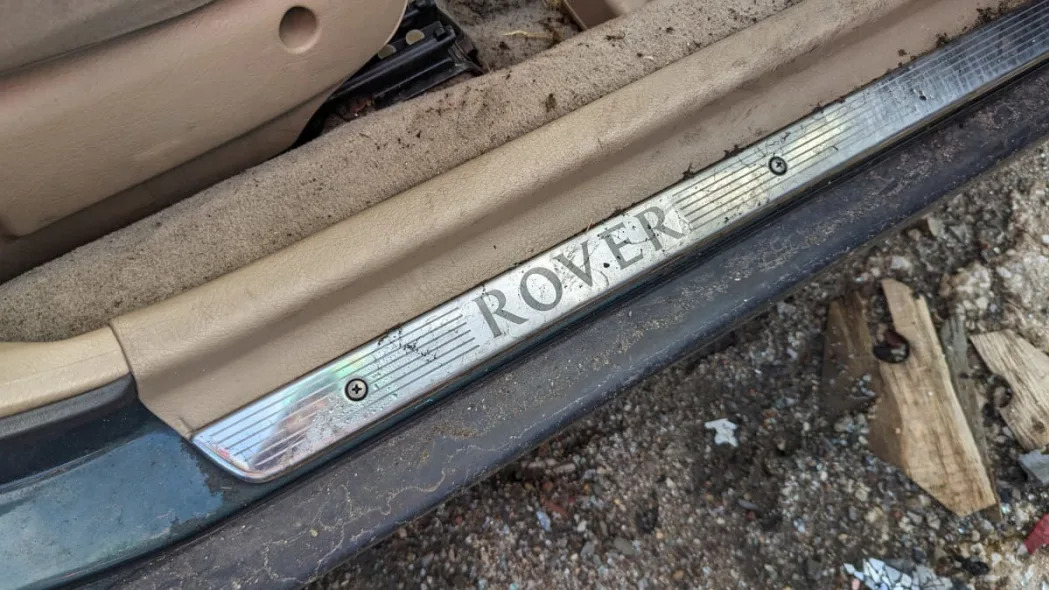
The first car to come out of the collaboration between British Leyland (later the Austin Rover Group and then just the Rover Group) and Honda was the 1981-1984 Triumph Acclaim. That car, which was the last to bear the Triumph name, was essentially an England-built Honda Ballade (aka high-trim-level JDM Civic sedan) with some minor cosmetic changes. Then came the Rover 800 plus the Rover 400 and its derivatives.
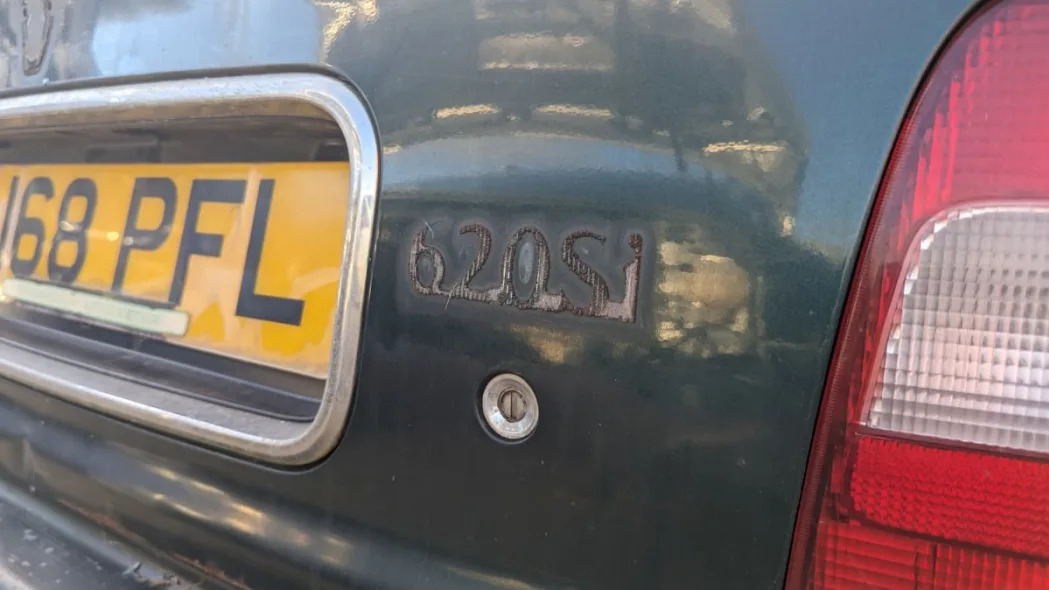
The Rover 600 Series was built for the 1993 through 1999 model years, after which it was replaced by the BMW-related Rover 75/MG ZT.
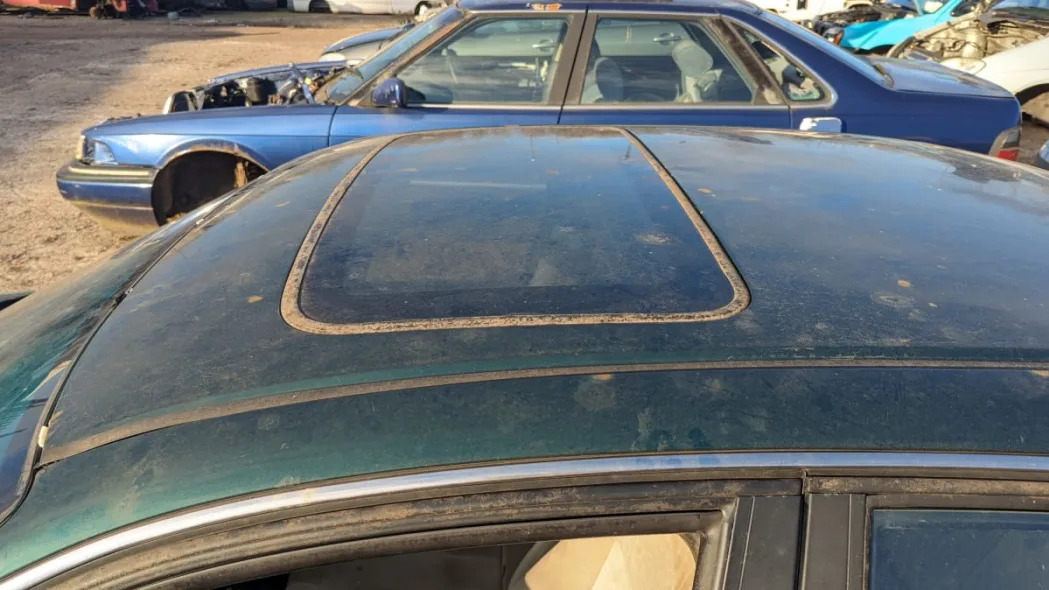
The chassis, interior and powertrain were all designed in Japan by Honda and are shared with the European-market fifth-generation Accord, but most of the body was designed by Rover. Only the front doors, lower rear door panels, windshield and roof are the same as the Accord’s.
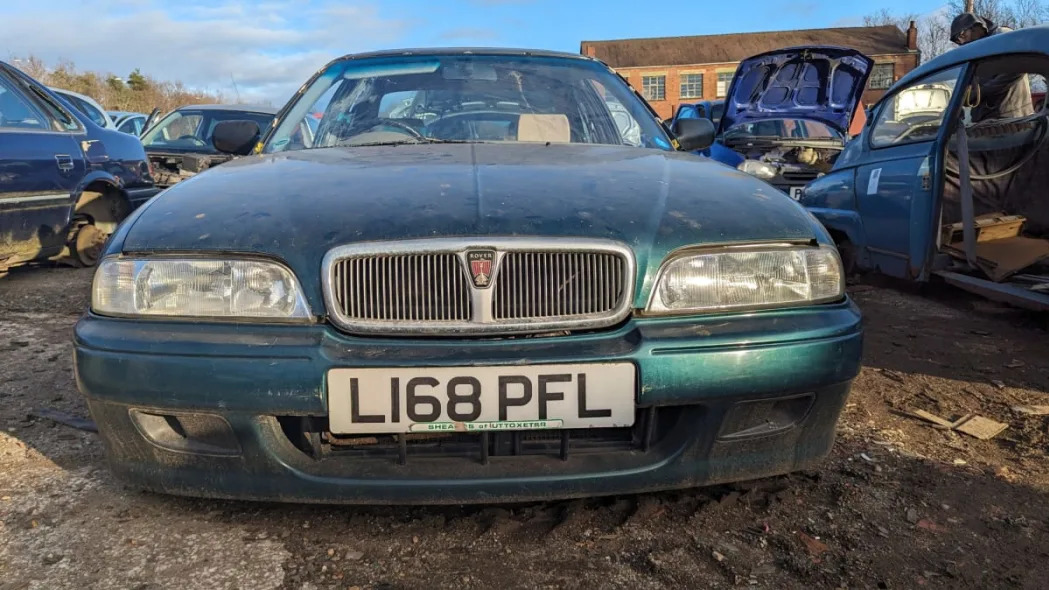
The 600’s grille was very distinctive and not at all Honda-ish.
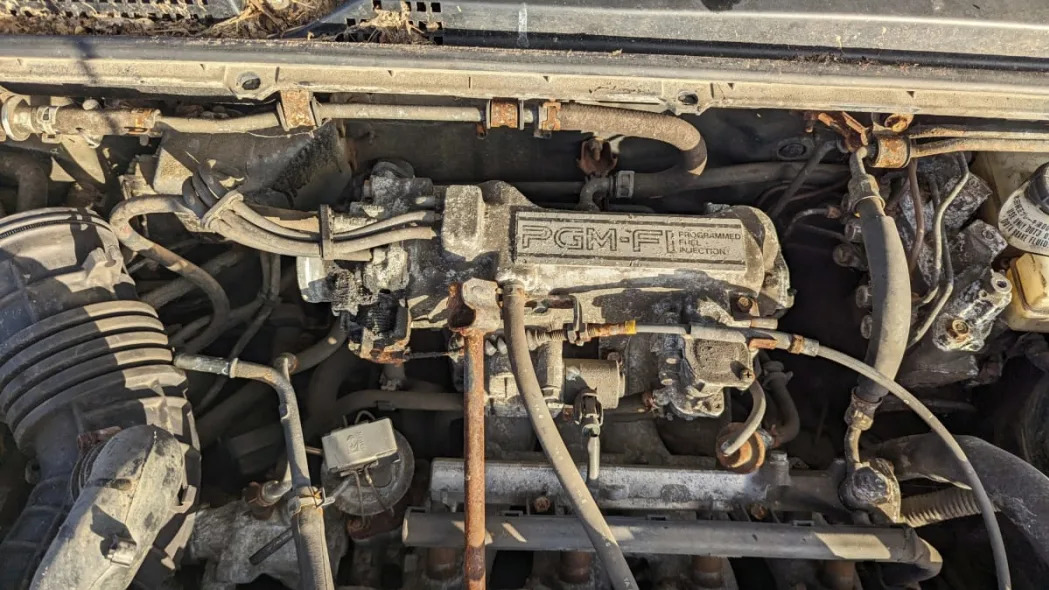
Open the bonnet and it’s all pure Honda beneath. This is an F20 2.0-liter SOHC straight-four. Suspension, brakes, the works — all Accord stuff. That meant that Rover 600 buyers got cars that drove like Accords and lasted like Accords. Later in 600 Series production, the 620ti was fitted with a turbocharged Rover engine, and Rover- and Honda-built diesel engines were available as well.
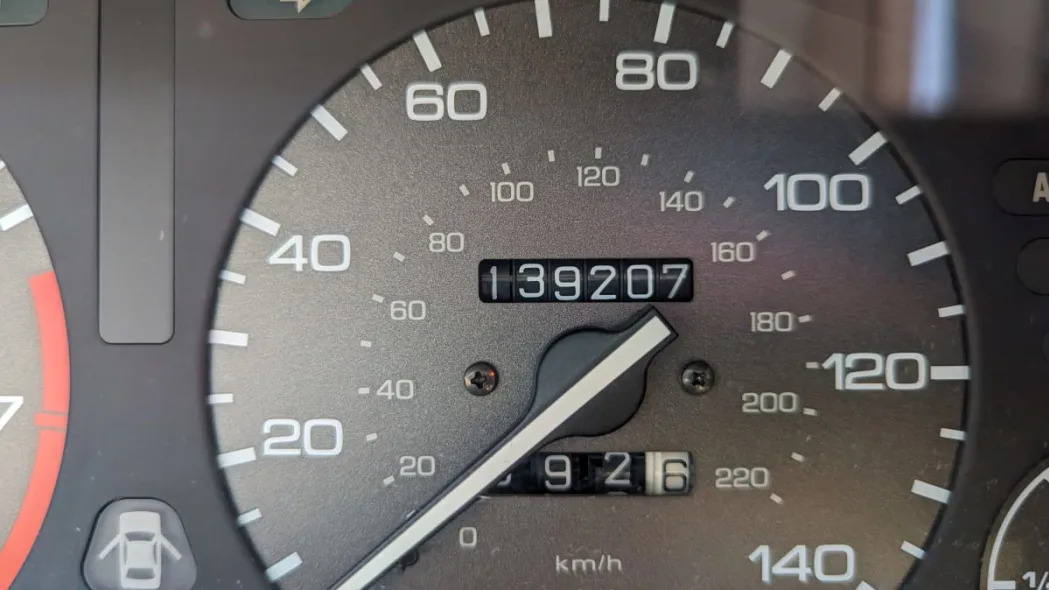
This one made it just shy of 140,000 miles (yes, that speedometer is nearly identical to the ones in U.S.-market fifth-generation Accords), but a check of its MOT inspection history shows that its registration expired in 2007. That’s better than 10,000 miles per year during its career on the road.
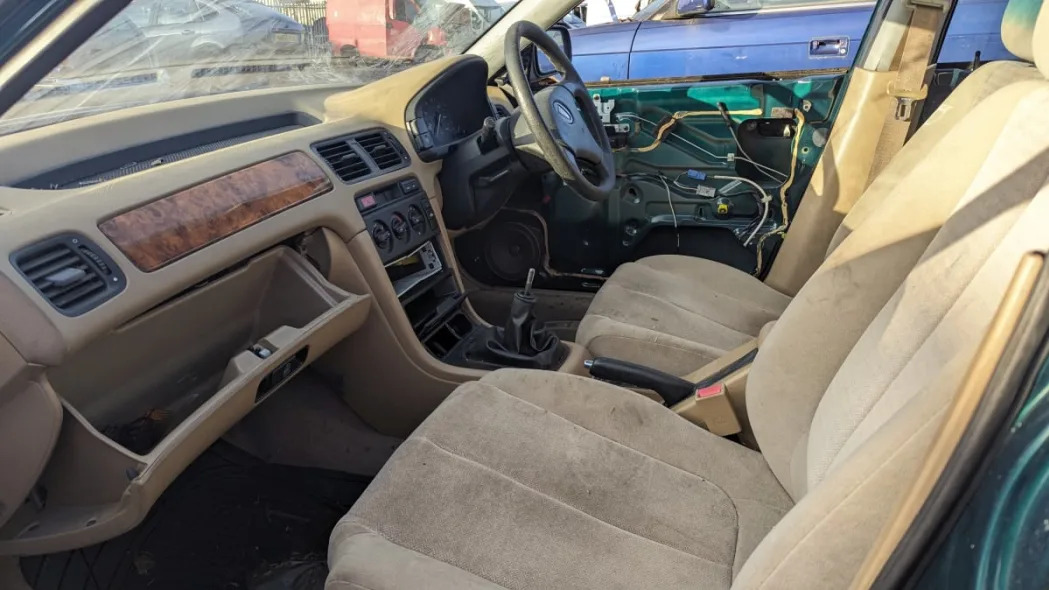
The interior looks to have been pretty nice when it got parked for good.

Transmission choices were between a five-speed manual and a four-speed automatic. This car has the manual.
This training video for Rover dealers explains the features of the 600 Series.
Just the car for a prisoner exchange in a former outpost of the British Empire.
The gentleman’s automobile.
The colour doesn’t match your new football team’s jerseys? No problem, Rover offers a 30-day return policy!
Read the full article here


